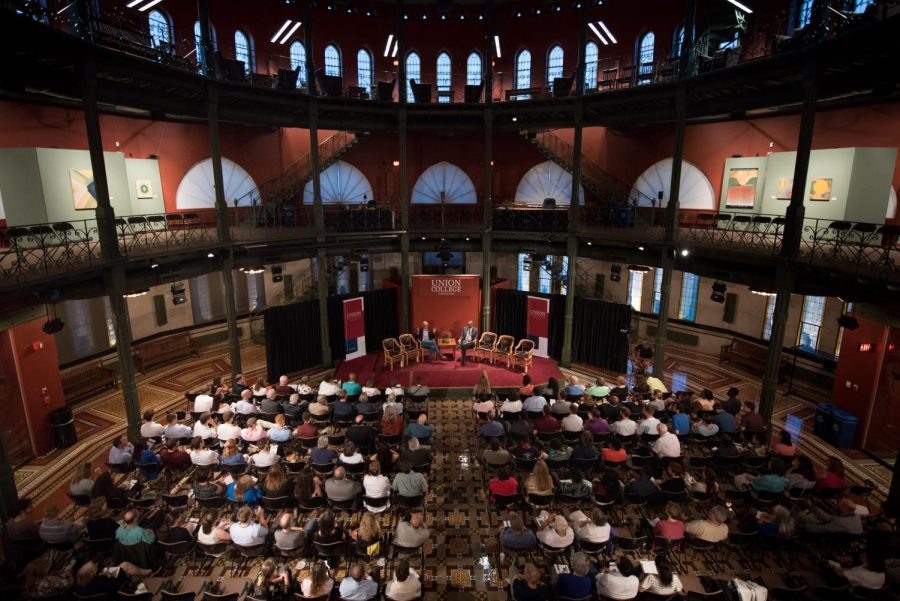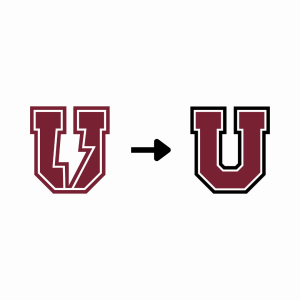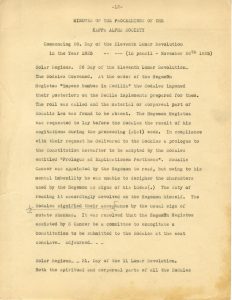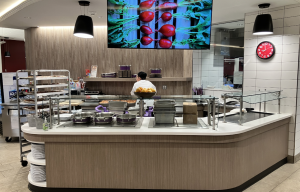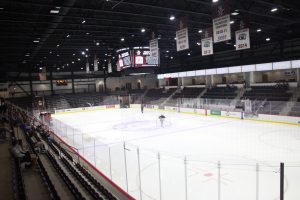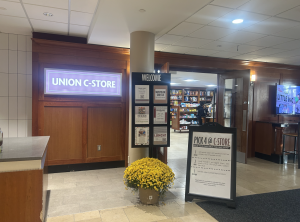President Harris, Students, Participate In Academic Symposium on Diversity
September 20, 2018
Leading up to his inauguration, President David R. Harris participated in a conversation and discussion on diversity in an academic symposium on Friday, September 7.
The symposium, titled “Constructive Engagement: What We Know and What We Do”, focused on the role that diversity plays in communities and the struggles communities face when trying to diversify.
This symposium took place as a part of the inaugural events that happened this weekend.
The academic symposium started off as a conversation between Harris and his friend, Professor of Complex Systems, Political Science and Economics at the University of Michigan Scott E. Page, on the research that they have done on the subject. One of the things that Page found in his research is that “identity diversity” correlates with improved performances.
“You want to fill rooms with people with different tool boxes,” Page said.
Harris added on by saying that an obstacle to diversity is this false concept of a meritocracy.
It is believed that people who achieved a certain amount of success in the past following a path limited to a few people are the best qualified for certain positions and these same paths are what qualify people to be successful in the present. He referred specifically to doctors and lawyers.
“High achievers think that they’ve made it because their good, and they’re good, but there are other types of good,” Page said. This assumption would work if the United States was truly a meritocracy, which Harris and Page believe it is not.
This false system of meritocracy is what inhibits diversity, according to Harris and Page. People without access to the same opportunities are denied the same potential, not always because of their race, but because of factors relating to race that are not always blatant racism. This is one of the American ideals that Harris and Page identified that the nation falls short of and that trying to pretend exists can be detrimental.
“I’m not a proponent of free speech on a college campus. I’m a proponent of constructive engagement,” Harris said, speaking of another ideal. He explained that constructive engagement is creating an environment where people discuss issues with each other, as opposed to letting people yell what they want over each other.
Another topic that kept coming up was the importance of having a shared goal when trying to create diverse communities. Harris and Page, as well as the panel members, agreed that while the Union campus is largely segregated, sports teams stand out as areas where integration thrives.
“If you just throw diversity in a room it’s a mess… When we have a shared sense of mission we see the issues disappear.
As you stop thinking about identity, you think about how this person can help me,” Page said. After sharing their views on the academic challenges faced in the modern world, the discussion was opened up to a panel of speakers consisting of Oghenerhona Eseyade ’21, Sociology Professor Deidre Hill-Butler, CEO and Co- Founder of the anti poverty organization LIFT Kirsten Lodal, Associate Professor of History Andrew Morris and Associate Director of Minerva Programs and Title IX Investigator Laura Munkres.
“College is a time to be a little uncomfortable… I feel it is a privilege to be at a school like Union where there is an opportunity to push people to take risks,” Hill-Butler said.
Hill-Butler talked about using her classroom as an area to have students question their beliefs and confront others who disagree with them.
Morris spoke about using his classroom similarly and using history as a tool to facilitate discussion.
“You can get at some of the contentious political issues… in a way that doesn’t immediately cause people to think, ‘Well, since I’m a conservative or a liberal, I have to defend this or attack this’,” Morris said.
“I think people expect it to be a heavy conversation instead of an engaging conversation,” Page said on why people do not discuss the issues multicultural societies face.


